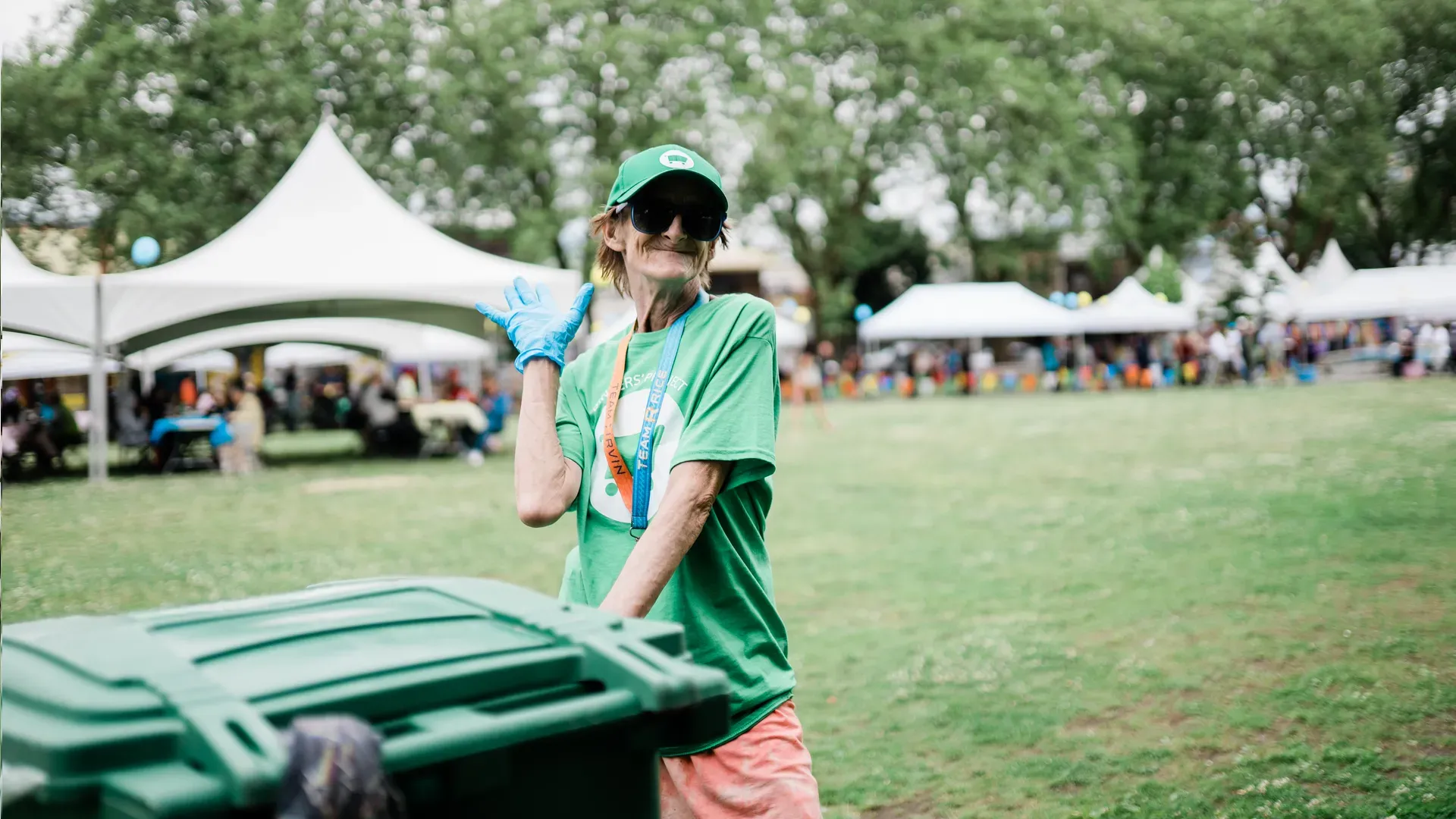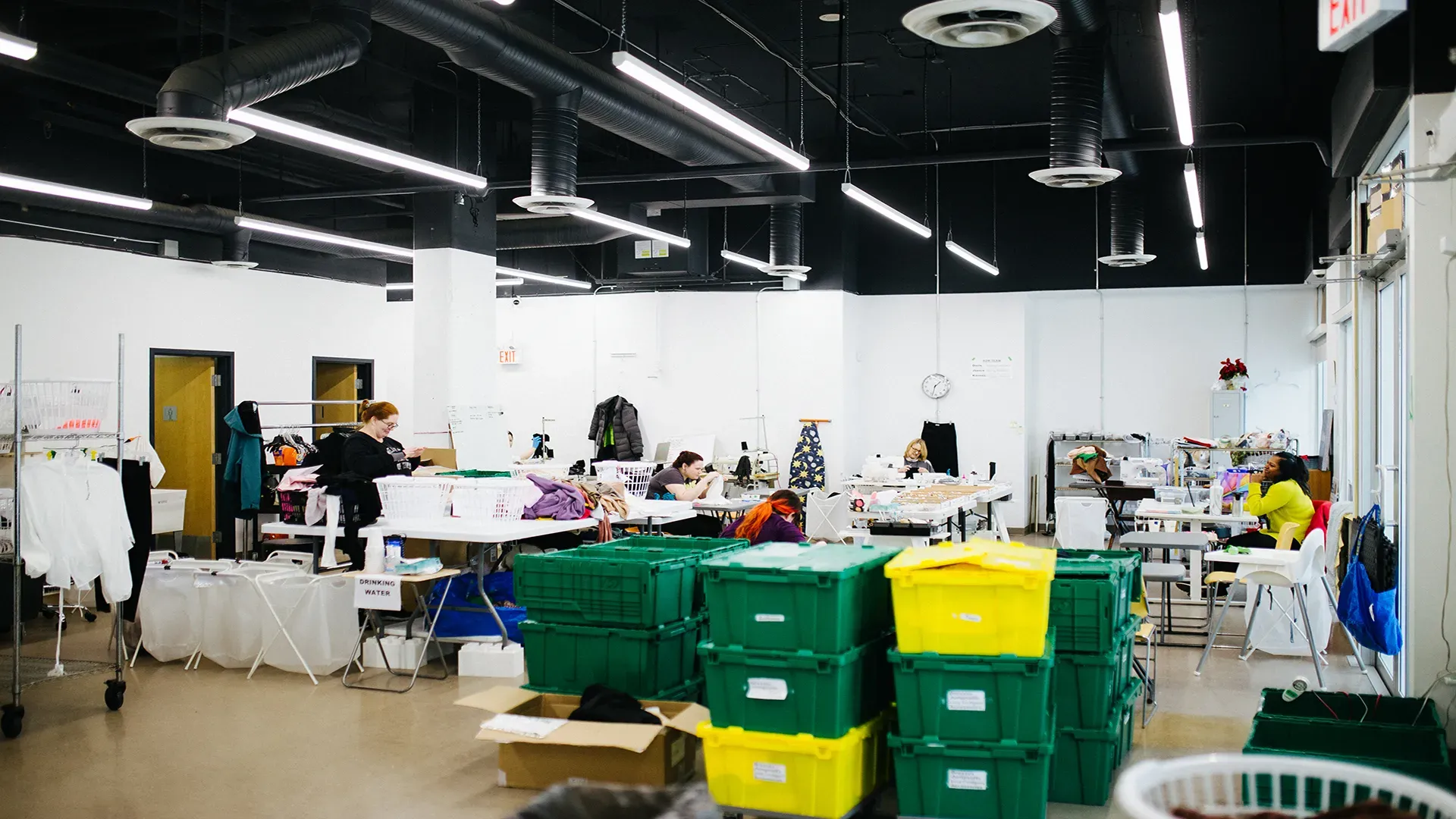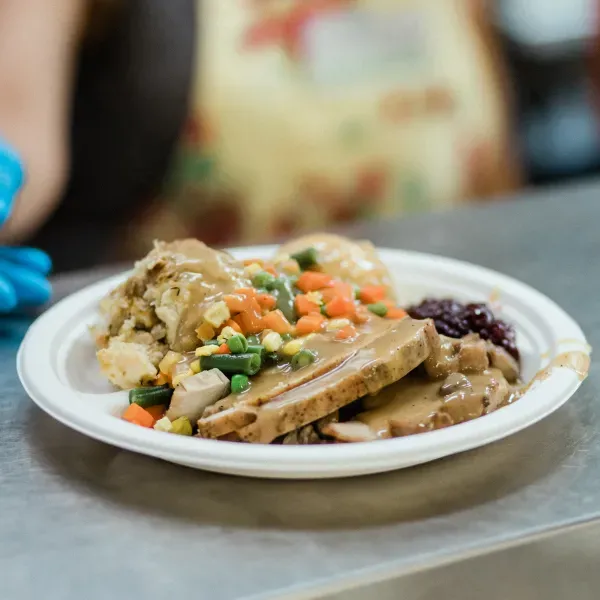Earth Day is just around the corner, and at Union Gospel Mission (UGM), we are so inspired by our community partners who are going green every day! Did you know that Metro Vancouverites tossed nearly 1 million tonnes of solid waste into Metro Vancouver landfills in 2021? Or that the average Vancouverite disposes of 14 lbs of clothing each year?
When it comes to caring for our planet, we can all benefit from partnership and ingenuity. Here are some exciting local organizations who are eco-friendly in big ways.
1. The Binners’ Project

In operation since 2014, the Binners’ Project is a green initiative where local recyclers collect redeemable containers to make income for themselves while having a positive impact on their community. The Project is guided by three fundamentals: waste diversion, social inclusion, and community economic development.
“As the climate emergency continues to increase, highlighting environmentally friendly activities is becoming more and more vital,” says Brianne De Man, Spokesperson for the Binners’ Project. “In particular, it’s important to ensure that we are creating environmental solutions that reduce inequities for people experiencing poverty and barriers to social and economic inclusion, and that's what Binners' Project strives to do.”
Aligned over shared values, UGM has partnered with the Binners’ Project numerous times for major events like our Easter Meal, ensuring our waste is properly sorted. For individuals looking to connect with the Binners’ Project, they welcome new collectors, and businesses can sign up for their Back-of House Waste Sorting program, an initiative that ensures the proper diversion of waste to recycling for commercial and residential buildings. At just one site, approximately 3 metric tonnes of waste was diverted!
No matter how or what you recycle, it doesn’t take much to make life easier for binners this Earth Day. “Support your local binner by separating out your refundable containers — things like alcoholic and non-alcoholic beverage containers, including milk cartons! — in an easily accessible place like in your alleyway or beside your blue bin on recycling day,” says Brianne. Recycling is just one way we can care for people in our community — while looking after the Earth.
2. The ShareReuseRepair Initiative
As we’ve seen time and time again at UGM, small changes can lead to big transformation. The ShareReuseRepair Initiative (SRRI) is another organization with change in mind: the initiative champions a circular economy, encouraging people to think creatively about how best to repurpose and redistribute goods. Their work includes testing out new waste-saving ideas, supporting innovative policy and partnerships, and amplifying existing circular efforts and programs.
Alice Henry, SRRI’s Program Manager, sees opportunity for creative eco-friendly thinking in everyday activities. “I would encourage people to look at how they can support their community while also helping the planet,” she says. “What are some local thrift stores you can support? How can you support your local library? What are some practices within your culture that you can embrace that also reduce the waste? How can you reduce food waste or help organizations redirect surplus food to those that need it?”
The ShareReuseRepair Initiative brings the Greater Vancouver region together in keeping waste minimal. And UGM is on board: we’ve partnered with SRRI by speaking at events, sharing our approach to social enterprise, and learning from the organization’s team members. We encourage you to read more about what they do, as we all stay motivated to go green!
3. Repair Cafés
Repair Cafés are a fantastic example of the circular economy. These community events invite attendees to bring in their small appliances, electronics, clothes, and even bikes for fixing free of charge, with the hope of saving these items from a trip to the landfill. The goal: giving broken items a second life.
Repair Cafés are community-based initiatives that bring people together to share skills, knowledge, and resources. They encourage collaboration and community building, creating a sense of ownership and responsibility towards the environment. – Joshua Hensman, City of Vancouver Zero Waste Outreach and Education Coordinator
Repair Cafés happen several times a year around Vancouver, and UGM will be hosting one in August! Stay tuned for more information on how you can bring your damaged household items from frustrating to functional.
4. Zero Waste Fairs
While individual actions do make a difference, there’s a lot of good to be done for the planet when we gather together. For more of a collective experience, we suggest attending a Zero Waste Fair. These events encourage waste reduction by hosting seminars, education booths on reducing garbage, and free swaps. Free swaps are an opportunity for people to bring small, portable items that are still in working condition and make them available for trade, giving unwanted items new homes.
Like Repair Cafés, Zero Waste Fairs are supported by the city of Vancouver. Joshua notes that these fairs are great place for people to engage in — and learn more about — waste reduction best practices. “Reduce single-use plastics, practice the three R’s (reduce, reuse, recycle), compost, support local, and participate in community green initiatives,” he says. “These actions not only help reduce waste but also promote sustainability and support the local economy and community.”
5. Social Enterprise at UGM

Do you have household items and good-condition garments sitting unused in your home? Do you need to buy a gift for someone but aren’t sure where to shop? Where and how you invest your time and money can have a lasting impact on your community — and the planet.
UGM’s social enterprise initiatives work to create cycles of healing and well-being. Whether you’re donating items to the UGM Thrift Store or shopping at Found Boutique, you’re providing opportunities for people in our communities to access the supports they need and build on their existing skills.
One example of this care continuum is Repair to Wear, which gives women in recovery a space to learn sewing skills — and earn income — while refurbishing damaged clothing. This program refreshes physical goods and makes room for women to re-establish their confidence.
“I had skills, I had value, but I forgot. Repair to Wear reminded me.” — Janice, Repair to Wear Participant and Part-Time Staff
What all of these organizations and initiatives show is that there isn’t one way to look after the Earth this Earth Day — there are many! When we combine our efforts, we can support the place we live and the people who call these communities home.


